How A Group Of Overlanders Has Taken Out The Trash From This Vast National Park
Posted by Harry Stewart on
At Chillbo, we love our national parks. And recent reports of their mistreatment around America have got us a little miffed.
Scratch that. We’re mad as hell.
So allow us to be serious for a minute.
As the one month mark looms ahead with no obvious end in sight, America’s public services are struggling under the strain of the latest government shutdown. Although all facets of the bureaucracy have been affected, few are in as much disarray as the National Park Service.
Federal employees throughout America continue to cop the brunt of the fallout, especially in our parks. Around 800,000 government workers have already missed their first paycheck, many of whom now rely on charity to survive.
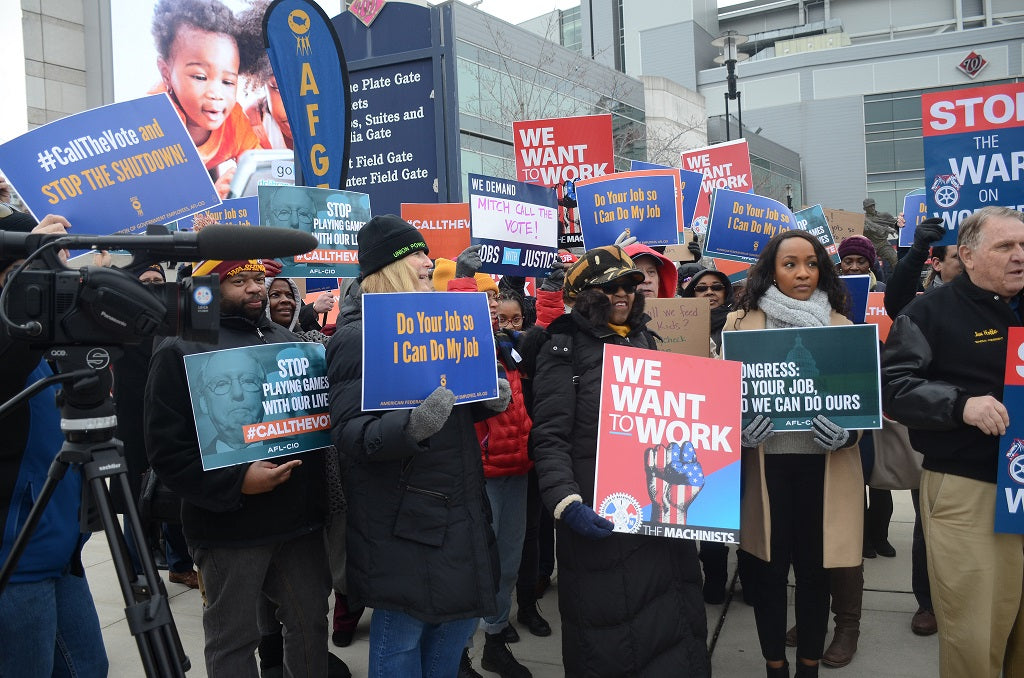
Government workers protesting the latest shutdown | © AFGE / Flickr
While this would be the perfect moment to launch into a deeply political diatribe, we think the country is already divided enough as it is, and we’d rather build common ground instead. One of the beautiful things about America’s National Parks is how they can unite us in their majesty and the merriment that comes with a weekend escape from the daily grind.
According to the National Parks Conservation Association, as many as 16,000 of the National Park Service’s 20,000 staff are non-essential and currently at home.
Nevertheless, the Department of the Interior has instructed the National Park Service to continue operating as many parks as legally possible on the proviso it’s safe to do so. As a result, around two-thirds of America’s national parks remain open, albeit hopelessly understaffed. This has caused massive headaches for park officials throughout the country.
California’s Joshua Tree National Park is among the worst hit. Spanning over 792,000 acres, these vast desert landscapes are hugely popular with hikers for their Yucca-clad valleys and climbers for their rugged rock formations. As it so happens, the government shutdown hit during one of the park’s peak tourist seasons.
Locals are doing everything they can to keep Joshua Tree open because horror stories of overflowing toilets and mountains of trash have been keeping tourists at bay. After all, many of the surrounding businesses rely on the park as a sole source of income. The Friend’s of Joshua Tree group, for example, has been running regular clean-ups since the shutdown began.
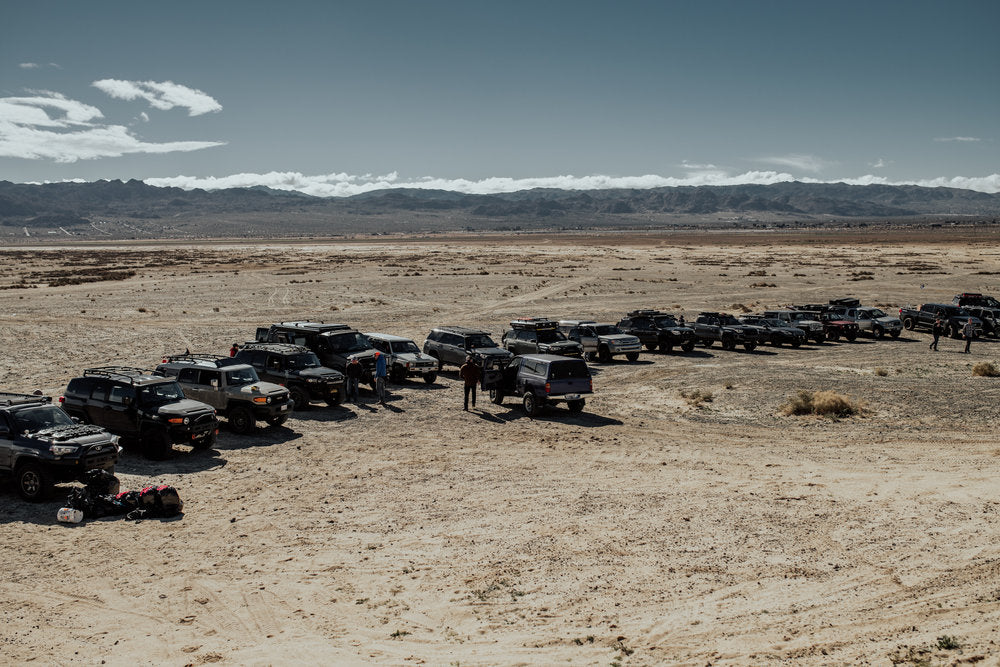
The overlander group gathers to begin the cleanup | Courtesy of Roaming Lost
But there’s another more unexpected niche community to get involved: the “overlanders,” a tight-knit group of 4x4 obsessed nomads with a deep respect for the great outdoors. After self-organizing online, they flocked to Joshua Tree in a dusty caravan of oversized pickups and SUVs for their own cleanup effort.
Chillbo spoke with Santa Barbara native Jordan Kelper, A.K.A Lost Sasquatch, a digital content creator and passionate overlander, to learn a little more about the early January event.
“I’d always liked getting involved with these cleanup efforts, ever since I graduated from college and set up a recycled furniture business,” he told Chillbo. “I’ve got a big full-size truck that can fit lots of trash so I try to take a full load away whenever I hit parkland trails.”
As you would expect, Jordan heard about the event through social media. A fellow digital content creator nicknamed Roaming Lost came up with the idea and posted it on his Instagram feed. Before long, word of the event had spread like wildfire and other well-known overlander crews such as @Fotornr, @Tacodust, and @C.O.R.V.A got on board.
The caravan arrived only to be told the locals had already cleaned inside the park. However, officials did mention a stretch of BLM land just past the northern fringes that could use a clean.
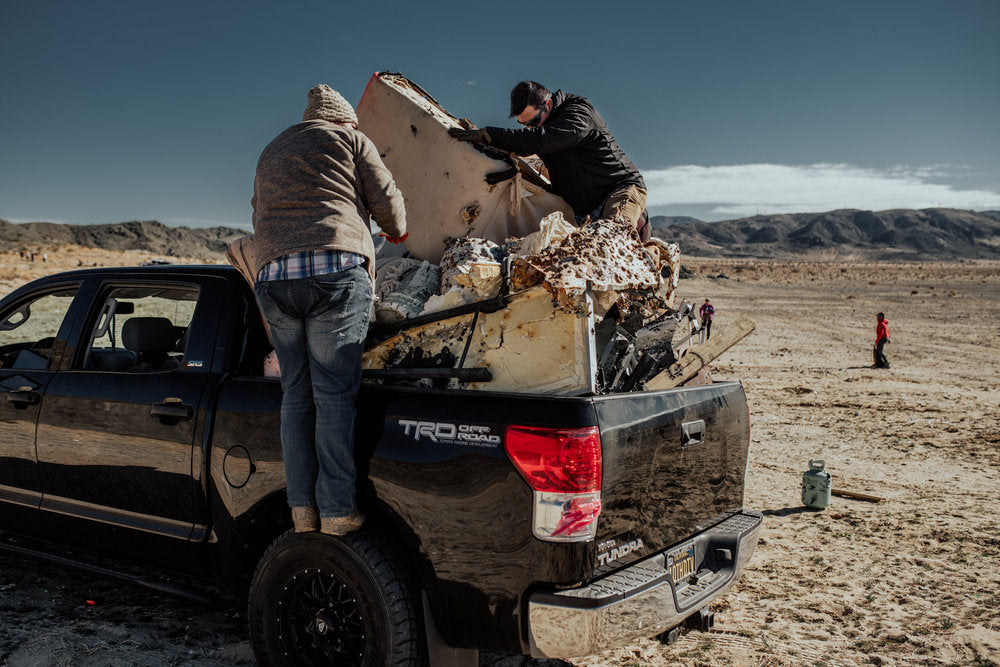
“When we got there, it was way worse than we imagined. New Years had just happened and there was a whole bunch of firework wrappers, burned mattresses and other crap.”
Even worse than the revellers are the dumpers, unscrupulous operators who take advantage of the lawlessness to save a few bucks on landfill fees. Given the isolation, this particular stretch of BLM land is prone to abuse regardless of whether a shutdown is in force.
“Tonnes of people come to illegally dump trailers full of trash out there,” Jordan explains.
Despite having a sizable contingent of 50 odd overlanders, plenty of garbage remained at the end of the event.
“We filled up nine trucks and a U-haul trailer, and it felt like we didn’t even make a dent on what was actually out there.”
To make matters worse, an unrelated group of overlanders had been accused of cutting down a Joshua Tree just days before the event. But as C.O.R.V.A pointed out on their Instagram, there were no tire marks, footprints, or hatchet wounds to indicate the tree had been vandalized. He believes it had fallen down naturally months ago and that PBS propagated a fake news story to drum up interest in the region. There are no formal suspects and the incident will likely never be resolved.
“The Joshua Tree vandalism didn’t just start with the shutdown. It’s been happening for years, since the popularity of the park increased. It just hurt that people tried to point the finger at 4x4 recreation as the main issue.”
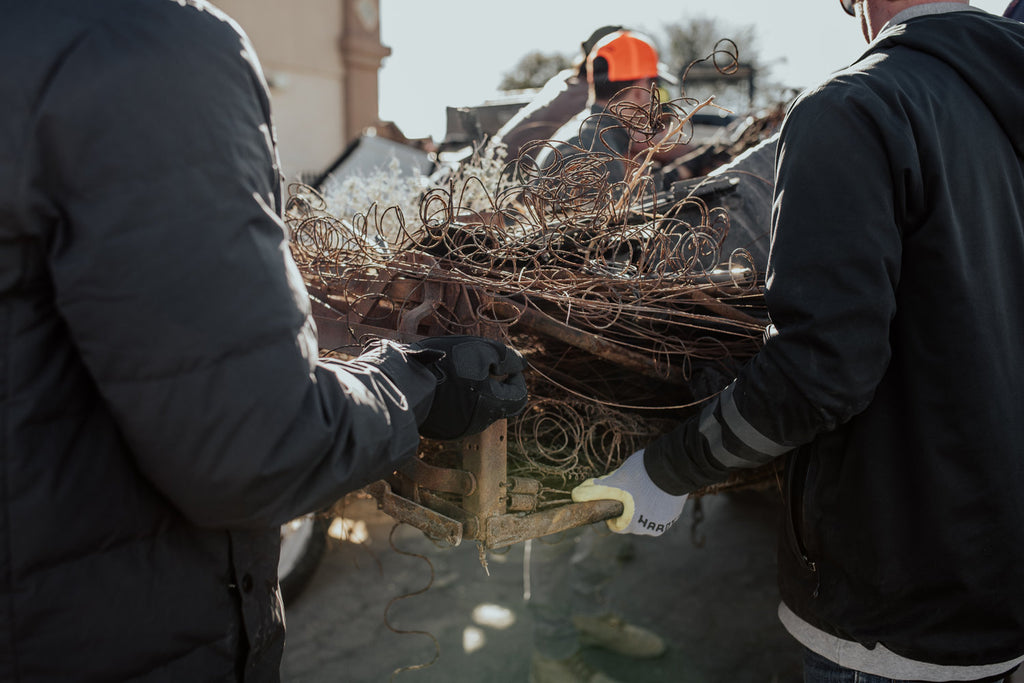
Piling garbage onto the trucks | Courtesy of Roaming Lost
Nevertheless, there’s no denying that some overland drivers don’t behave appropriately in our national parks, which is a constant source of frustration for folks like Jordan who are just trying to do the right thing. Joshua Tree Park officials told various news outlets how 4x4 vehicles had been deliberately going off road and carving up new trails through the formerly pristine desert.
On one journey back from the BLM, a furious local mistook Jordan’s crew for illegal dumpers with a fresh load of garbage on their full-size truck. The misunderstanding was promptly rectified although it was clear tensions in the region - especially against overlanders - were at an all-time high.
“People there were pointing the finger at all us overlanders,” Jordan says. “Normally overlanders who spend a lot of time out there treat it pretty nice. But sometimes when new people come out they don’t always know how to behave.”
And that’s ultimately what’s tarnished the reputation of this particular subculture. Most overlanders are considerate of their surroundings and follow strict “leave no trace” principals. But sadly, there’s a smaller portion out there who seemingly just don’t care.
Alleged acts of eco-vandalism combined with funding woes caused park officials to announce the Joshua Tree’s temporary closure on January 10. But at the 11th hour, administrators managed to dip into previous entry fees to keep the park open and it has been running on limited resources ever since.
Despite a high degree of mistrust from locals and officials, the overlander community already has a bigger clean-up event in the works to finish up the job. Roaming Lost is in charge of the logistics again, this time for a two-day event scheduled to take place on the 9th and 10th of March.
Judging from initial interest and past experience, up to 400 people are expected to attend including fellow overlander groups such as Overland Bound, Outpost, and Usual Time, to name a few.
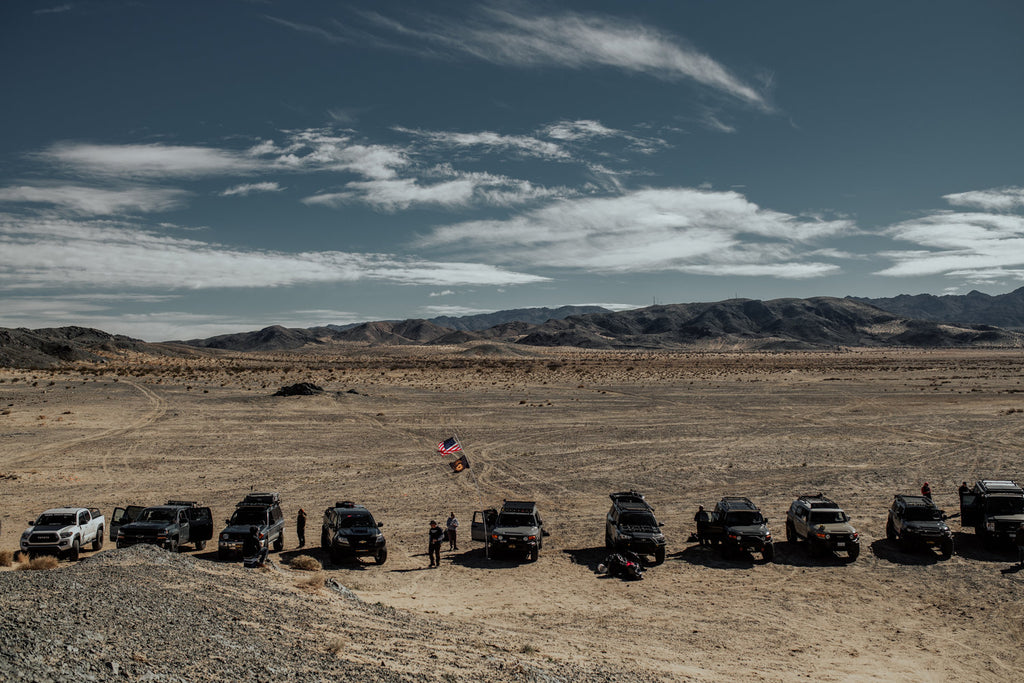
The overlanders assemble to clean the BLM land | Courtesy of Roaming Lost
To sweeten the deal, they’re even putting on a raffle in which a number of tickets are given free to attendees depending on the extent of their contribution. Although prize packs have yet to be announced, they’re bound to be juicy because sponsors include Chillbo, BH Photo, Westin Automotive, Geocache, Front Runner, Drink Tanks, Sock Smith, 111 Watches, and Topo Designs.
For many, the highlight will be an open-air party held on Saturday night where overlanders and other contributors are encouraged to meet and mingle.
If you’re interested in getting involved in the cleanup effort, keep an eye on Roaming Lost’s blog for updates on the event.
The government shutdown highlighted one issue all Americans can agree on: our most treasured natural wonders are worth protecting for generations to come.
Despite the political games being played in Washington, it is reassuring to see passionate everyday Americans self-organizing to maintain essential services so people like you and me can still enjoy our adventures in the wild!
0 comments